
In both HERCULES and GEMINI trials, tolebrutinib reduced the risk of 6-month confirmed disability worsening, especially in participants with at least 4 baseline paramagnetic rim lesions.

In both HERCULES and GEMINI trials, tolebrutinib reduced the risk of 6-month confirmed disability worsening, especially in participants with at least 4 baseline paramagnetic rim lesions.

The pediatric neurologist at Children’s Hospital of Philadelphia gave perspective on some of the main issues the clinical community is figuring out with gene therapies and their integration to clinical practice. [WATCH TIME: 3 minutes]

Glatiramer acetate depot treatment showed stability in EDSS scores over 3 years, suggesting halted progression in patients with primary progressive MS.
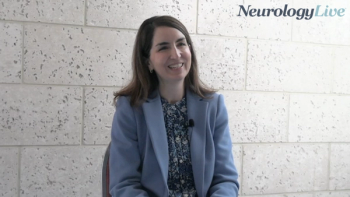
At the 2025 ACTRIMS Forum, the system chief of neuroimmunology and multiple sclerosis at OhioHealth discussed the need for better tools to detect MS progression. [WATCH TIME: 3 minutes]
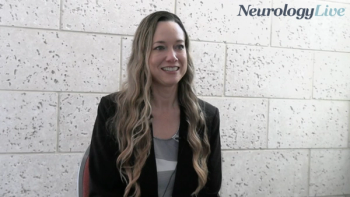
The director of the MS and Demyelinating Disease Center at Texas Tech University Health Sciences Center talked about early diagnosis, timely treatment, and minimizing therapy transition gaps to prevent severe disability in patients with NMOSD. [WATCH TIME: 4 minutes]

After 24 months after switching to cladribine, 100% of patients with relapsing MS remained free from T1 gadolinium-enhancing lesions, with no reported cases of PML or rebound disease activity.
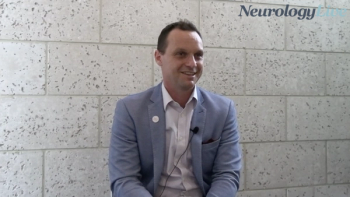
The assistant professor of neurology and neurosurgery at McGill University discussed the role of paramagnetic rim lesions as potential biomarkers of compartmentalized inflammation in MS. [WATCH TIME: 4 minutes]

The founder and executive director of the Sumaira Foundation talked about how the landscape of NMOSD treatment has drastically improved with FDA-approved therapies, while noting that accessibility and awareness remain significant challenges. [WATCH TIME: 4 minutes]
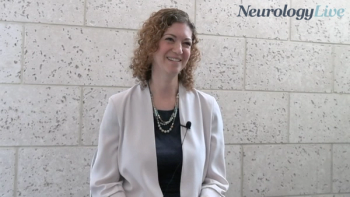
The assistant professor of medicine at the University of Toronto talked about emerging research on how prodromal symptoms may aid in the early identification of multiple sclerosis and neuromyelitis optica spectrum disorder. [WATCH TIME: 6 minutes]

The 80 mg QD dosage, which showed the greatest efficacy in lesion reduction (92.3% at 24 weeks), will be used in phase 3 progressive MS studies.
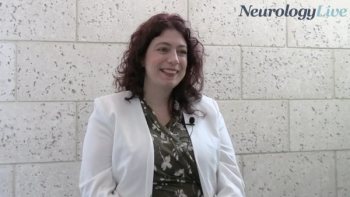
At the 2025 ACTRIMS Forum, the assistant professor of neuroimmunology at McGill University talked about examining immune cell signatures to track disease worsening in multiple sclerosis. [WATCH TIME: 4 minutes]

A new phase 1 study will investigate the safety and biological effects of light therapy as a potential approach to alleviating fatigue in patients with progressive multiple sclerosis.

The autoimmune neurology program director at the University of Colorado highlighted the potential of CAR T-cell therapy for treating autoimmune neurologic diseases like progressive forms of multiple sclerosis. [WATCH TIME: 3 minutes]

The autoimmune neurology program director at the University of Colorado talked about the emerging use of CAR T-cell therapy, a breakthrough from oncology, now being explored in autoimmune neurologic diseases like multiple sclerosis. [WATCH TIME: 3 minutes]

The vice president and senior global program lead for Hematology and Cell Therapy at BMS provided an overview behind the mechanism and early phase 1 data of BMS-986353 in various forms of multiple sclerosis. [WATCH TIME: 4 minutes]

The staff neurologist at the Mellen Center for Multiple Sclerosis at Cleveland Clinic discussed how the CALLIPER trial’s lower proportion of patients with gadolinium-enhancing lesions mirrors clinical practice more closely than other progressive MS trials. [WATCH TIME: 2 minutes]

The staff neurologist at the Mellen Center for Multiple Sclerosis at Cleveland Clinic discussed key insights into patient characteristics and lesion differences of the CALLIPER Trial in retrospect to other studies. [WATCH TIME: 4 minutes]

After 4 years of treatment, those on cladribine demonstrated a correlation between sustained health-related quality of life, specifically physical and mental health, and cognition.
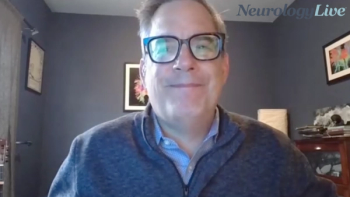
The executive vice president of research at National MS Society talked about how advancements in the field of neurology are shaping new approaches to diagnosing, monitoring, and treating multiple sclerosis. [WATCH TIME: 5 minutes]

Overall, 81.6% of patients preferred ocrelizumab over other MS treatments, with 98.1% satisfied with it overall by week 48.

The executive vice president of research at National MS Society discussed the role of compartmentalized inflammation, microglial interactions, and emerging therapeutic targets in multiple sclerosis. [WATCH TIME: 4 minutes]

The study will track patients over 36 months and use T2 lesion count and the number of serious infections as primary endpoints, with secondary endpoints including adverse events, relapse rates, and the achievement of no evidence of disease activity.

RapidAI identified 98% of LVOs compared to 74% by Viz LVO, while also correctly identifying 94% of LVO-negative cases compared to 91% for Viz.

The pediatric neurologist provided a clinical overview of the advances and roadblocks of gene therapy in neuromuscular disorders, which will be highlighted at the 2025 MDA Clinical & Scientific Conference.

ANGEL-TNK demonstrated Tenecteplase's potential to enhance microcirculation post-thrombectomy, reducing brain tissue damage from inadequate blood flow.

The John David Eaton Chair in Multiple Sclerosis at the University of Toronto gave clinical insights on emerging, innovative tracks at the 2025 ACTRIMS Forum and how these sessions align with recent trends in the multiple sclerosis field. [WATCH TIME: 4 minutes]

The associate professor of neurology at Columbia University provided commentary on the rapid advancements in translating genetic research into ALS treatments and the challenges that remain. [WATCH TIME: 5 minutes]

The director of the Cerebrovascular Center at Mount Sinai discussed how results from the ESCAPE-MeVO trial highlight the impact of anesthesia rates, thrombectomy techniques, and the need for rigorous clinical trials to minimize bias. [WATCH TIME: 3 minutes]

The president of the American Heart Association discussed how precision medicine, advanced imaging, and expanded treatment windows are transforming stroke care, as displayed at ISC 2025. [WATCH TIME: 5 minutes]

The pediatric neurologist at Children’s Hospital of Philadelphia provided background on a notable track session at the upcoming MDA Clinical & Scientific Conference covering updates in gene therapy for neuromuscular conditions. [WATCH TIME: 4 minutes]